The 10 Best Jackie Chan Movies, Ranked
No movie star in the world has the same legacy and influence in cinema as that of Jackie Chan. His acrobatic and slapstick fight choreography, impeccable comedic timing, and innovation in stunt work influenced franchises such as The Matrix, John Wick, Kill Bill, and The Kingsmen. Presenting him a lifetime achievement award at the 1995 MTV Movie Awards, Quentin Tarantino named him "one of the best filmmakers the world has ever known" and "one of the greatest physical comedians since sound came into film."
With a personality as wide as the Earth and reverence in the Western and Eastern hemispheres, Chan developed a career based on Kung Fu chops, action-first directing, and versatile acting in comedy and drama. With his career reaching a staggering 62nd year of activity, a retrospective dive into his filmography is due. These are the best Jackie Chan films.
'Rush Hour' (1998)
Directed by Brett Ratner
For even the most aloof and indifferent media consumers, Chan is widely recognized for his performance oppositeChris Tucker in the Rush Hour franchise. While Rush Hour 2 is categorically "not horrible" and that DVD of Rush Hour 3 collects dust in your basement, the first film in the series remains as funny and action-packed as it was 26 years ago. Following Chan as Chief Inspector Lee, he flies from Hong Kong to Los Angeles to find the Chinese consulate's kidnapped daughter, only to be "babysat" by LAPD Detective James Carter (Tucker).
Rush Hour is about as 90s as a film can get: a buddy cop action comedy premise, a movie star paired with a rising stand-up comic, and a win at the MTV Movie Awards. Yet it's Chan and Tucker's chemistry that remains timeless. Compared to his previous output, Chan's comedy chops are more subdued and rely on being the straight man to the wild card of Tucker. Rush Hour firmly seated Chan at the Hollywood table for the next decade and a half as a worldwide star, and funny enough, it spawned the aggregator website Rotten Tomatoes.
'Police Story 2' (1988)
Directed by Jackie Chan
Police Story 2 had high expectations from the start, but Chan knew what he had in mind for the sequel and used the previous film's criticisms as a stepping stone. With Chan Ka-Kui now demoted to highway patrol, he visits Bali with his girlfriend May (Maggie Cheung) for vacation. But when bombers destroy a shopping mall, he's enlisted to solve the case, all while crime lord Chu Tao (Chor Yuen) returns to gain revenge on Chan.
Critics and scholars agree that there's not much story to Police Story 2 (ironic eh). But what it does bring is fewer emotions and more action realism, a nice middle ground for audiences getting into Hong Kong martial arts cinema. The film tones down Chan's acting in favor of his directing skills, sacrificing violence for tighter pacing and marvelous, albeit fewer, stunts and action set pieces. Police Story 2 tries to continue the momentum of the breakout franchise to varying degrees. Nonetheless, it is a worthwhile film and one where Chan grows as a filmmaker.
'Wheels on Meals' (1984)
Directed by Sammo Hung
For a period in the 1980s, Chan collaborated with schoolmates and actors Yuen Biao and Sammo Hung, known collectively as the Three Brothers. In the film Wheels on Meals, Chan stars as Thomas, a Chinese expat in Barcelona who operates a fast food van with his cousin David (Biao) and practices martial arts in their off time. When their P.I. friend Moby (Hung) is tasked with protecting a pickpocket, Sylvia (Lola Forner), they use their martial arts skills to fend off a biker gang, with plenty of hijinks.
Wheels on Meals was the first of two collaborations between Chan and legendary kickboxer Benny Urquidez. The final fight sequence in the movie is considered to be one of the best of all time, featuring Chan climbing a castle to rescue Sylvia and dynamic hand-to-hand combat between Chan and Urquidez. The film was also adapted into the arcade game Kung-Fu Master, one of the first ""beat 'em up brawler"" games and side-scrolling action games. It's vintage Chan with a tad of silliness, predicting the high-concept future of Chan's Hollywood career.
Dragons Forever (1988)
Directed by Sammo Hung and Corey Yuen
The often-forgotten Dragons Forever doesn't ring a bell to most cinephiles, but it is an absolute must-watch for Hong Kong completists. The final collaboration between Chan, Hung, and Biao follows lawyer Jackie Lung (Chan), hired by a chemical factory to investigate the owner of a local fishery (Deannie Yip) who's suing them. He enlists an arms dealer (Hung) and an inventor/criminal (Biao) to help, but things get dicey when the three find out the factory is a front for narcotics.
The film flopped at the box office, making only $11 million upon release. Hong Kong producer and martial artist Bey Logan gave a simple explanation of why the film underperformed: the cast played against type. Chan played a slimy womanizer. Biao was not an underdog but an eccentric and potentially mentally ill criminal. Hung ditched timidity for mischief. Logan explained that Hong Kong audiences are not privy to such departures. Yet, it's those subversions that keep the story and performances fresh, especially Chan. It exposed audiences to a different shade of Chan that wasn't shown, and despite the curveball in the 80s, Chan utilized depth for dramatic performances in the 2010s.
'Police Story 3: Supercop' (1992)
Directed by Stanley Tong
The third sequels have never really come close to replicating the original or the original sequel. But Police Story 3 (or Supercop in the U.S.) comes very close to achieving that. With Chan reprising his role as Hong Kong "supercop" Chan Ka-Kui, he's partnered with Interpol Superintendent Jessica Yang (Michelle Yeoh) to take down a drug cartel. Despite Chan not directing the film after the first two Police Story films, he was the stunt coordinator (or "action director") and produced the film, a first in the series.
Chan and Yeoh co-starring in a film were basically Pitt and Jolie co-starring in a film; a dream come true. The two performed their own stunts and fans have hallmarked the helicopter-train chase scene as a standout scene for its realism and riskiness, unlike most Hollywood stunts with doubles and special effects. Tarantino named the movie as one of his favorite movies in the last 32 years and that it featured some of the "greatest stunts ever filmed in any movie ever." Released by Dimension Films and Miramax in 1996, the film's success sparked Hollywood's interest in Chan and Yeoh's second career after a brief retirement in the late 80s.
'Snake in the Eagle's Shadow' (1978)
Directed by Yuen Woo-ping
Chan began his career as an extra, background actor and stuntperson for martial arts films and especially films starring Bruce Lee. Snake in the Eagle's Shadow gave him the opportunity to lead his own film. Directed by martial arts cinema legend Yuen Woo-ping, Chan stars as an orphan named Chien Fu, who gets bullied at Kung Fu school. He meets a beggar, Pai Cheng-tien (Yuen Siu-tien), who takes him under his wing and trains him in Snake Kung Fu.
The film established two essentials of the 1980s. First, Chan was given freedom for his stunts by Woo-ping. The leeway led to him developing his signature slapstick Kung Fu style of martial arts that differed from the Jeet Kune Do style of Bruce Lee films. Think of Buster Keaton if he could kickbox. Second, the plot created the blueprint for future martial arts films, including The Karate Kid franchise and the inevitable rip-offs that followed. Chan's revolutionary combat style was akin to the Beatles on the Ed Sullivan Show. A new face was in town with a new sound.
'Project A' (1983)
Directed by Jackie Chan
The first collaboration between the Three Brothers follows Chan as Sergeant Dragon Ma of the Hong Kong Marine Force. With the force ineffective at stopping pirates from raiding ships and internal corruption from high authority, he teams up with a police captain (Biao) and a thief (Hung) to end the pirates' terror once and for all. Project A was a massive success throughout East Asia and won Best Action Choreography at the Hong Kong Film Awards.
After a noted lack of action in Chan's previous film, The Young Master, Chan and co-writer/producer Edward Tang made an effort to include more stuntwork. The most notable of which is the clock tower stunt, where Chan hung from the hand of a clock tower 60 feet above the ground and then fell through canopy awnings. He performed the stunt three times. As an anecdote about Chan's filmmaking, he halted production to viewSteven Spielberg'sE.T. the Extra-Terrestrial in order to differentiate the bicycle flight from his own bicycle stunt. Project A was a turning point in Chan's career, hardening the action-first mindset for his future films.
'Drunken Master' (1978)
Directed by Yuen Woo-ping
Filmed after and featuring the same crew as Snake in the Eagle's Shadow, Drunken Master follows a similar structure and story. After a series of mischievous events, Wong Fei-hung (Chan) is forced to train in martial arts under Beggar So (Siu-tien), the master of the drunken fighting style. Even though they don't get along at first, Wong develops respect and love for So. Under Ping's direction, Chan delivers style after style. Head-fu, Snake, Crane, Tiger, Monkey, and Choi Lei Fut are all featured in the film.
Drunken Master set a standard for future martial arts films and became an influential phenomenon. Chan's shoulder-length hairstyle became the cut of choice in Asia, as referenced in Naruto and Mortal Kombat, and artists Edgar Wright and Akira Toriyamacited the film as inspiration for The World's End and Dragon Ball, respectively. Most importantly, it made Chan a star and the hottest name in Hong Kong.
Police Story (1985)
Directed by Jackie Chan
Police Story is arguably Chan's finest hour, not only as a stunt performer but also as an actor, writer, and filmmaker. The film offers a simple story. Detective Ka-Kui (Chan) plans a sting operation to arrest Chu Tao (Yuen). Yet it goes awry, resulting in Kui being accused of murder and needing to clear his name. Chan began developing the film after a poor experience with The Protector, which was made to launch Chan in North America. With Police Story under his tutelage, Chan and Tang structured the film to be around set pieces rather than characters' actions.
Such structure led to some of the most jaw-dropping stunts shot on film. Chan featured a car chase in the opening scene, a nail-biting scene of Chan dangling from a double-decker bus, and the climactic 20-minute shopping mall scene nicknamed "Glass Story" due to the amount of sugar glass panes that shattered. In the final stunt, Chan suffered second-degree burns after sliding down a heated light pole many stories up, not to mention the fear of injury (Chan suffered a back injury and a dislocated pelvis) and logistics of cleaning up the mall for business the next morning. All of it paid off, though, as Police Story placed 5th in a poll by critics, filmmakers, actors, and stunt performers ranking the greatest action films of all time.
Drunken Master II (or The Legend of Drunken Master) (1994)
Directed by Lau Kar-leung
Despite Chan reprising his role as Wong Fei-hung, Drunken Master II (or The Legend of the Drunken Master in the US) is not a sequel to Drunken Master. The standalone film shows Wong, accompanied by his father, Wong Kei-ying (Ti Lung), and servant, Tso (Ram Chiang), returning home to Guangzhou in the early 20th century. Yet they are caught between stopping a group of foreigners from stealing Chinese-sealed artifacts or respecting pacifism according to Kei-ying's wishes, all while Wong tries to control his drinking.
Chan's comedy, martial arts, stunts, and charisma are at peak power. No action film has been able to capture the screen presence or the diversity of fighting Chan has in Drunken Master II. The train fight with him and Fu Wen-chi (Lau Kar-leung) follows the Hung Ga style; the restaurant fight uses Shaolin Kung Fu, drunken boxing in the iconic central city fight; and Chan diverts from the norm with the Drunken Eight Immortals style in the final fight with him and John (Ken Lo). Chan keeps the film loose and rapid, filling the time with kicks, punches, and comic drinking. The film received high honors, being named one of the Top 100 Best Films of All Time by TIME Magazine and one of the 10 best action films of all time by the British Film Institute. Kung Fu hasn't looked more fun, effortless, or stylized than Chan in Drunken Master II.

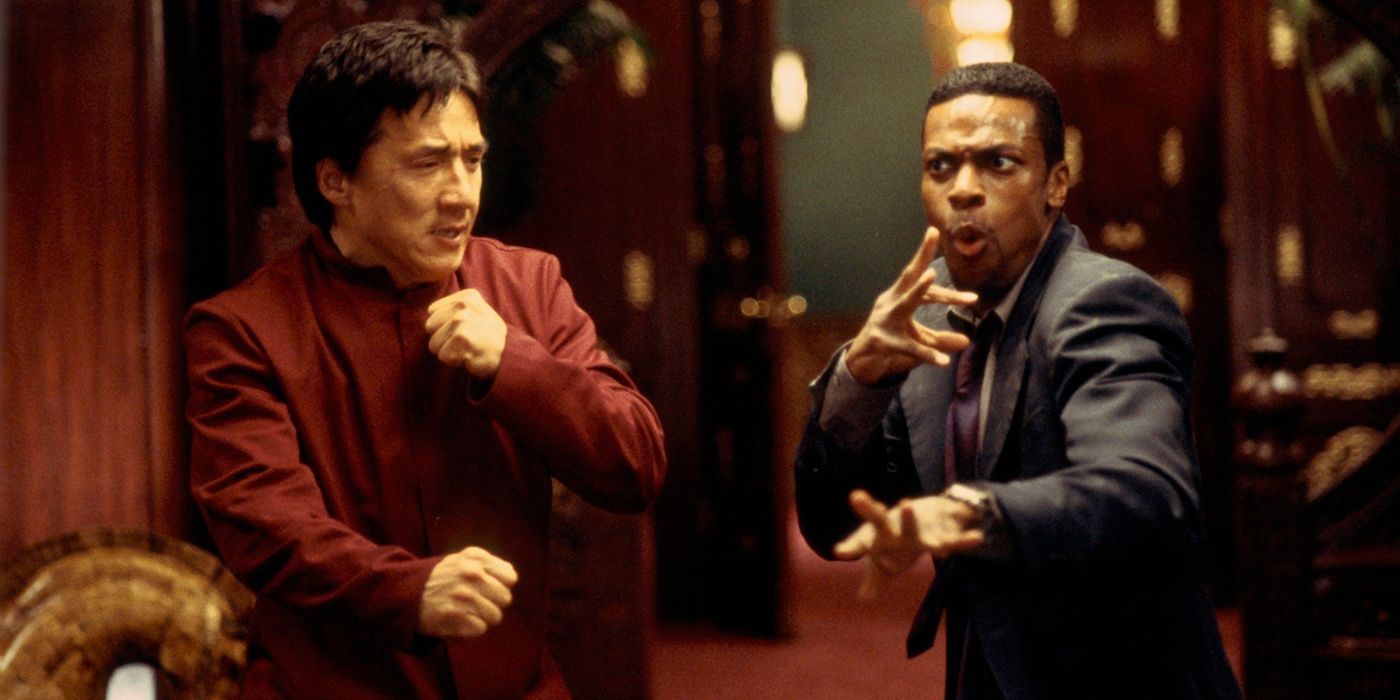
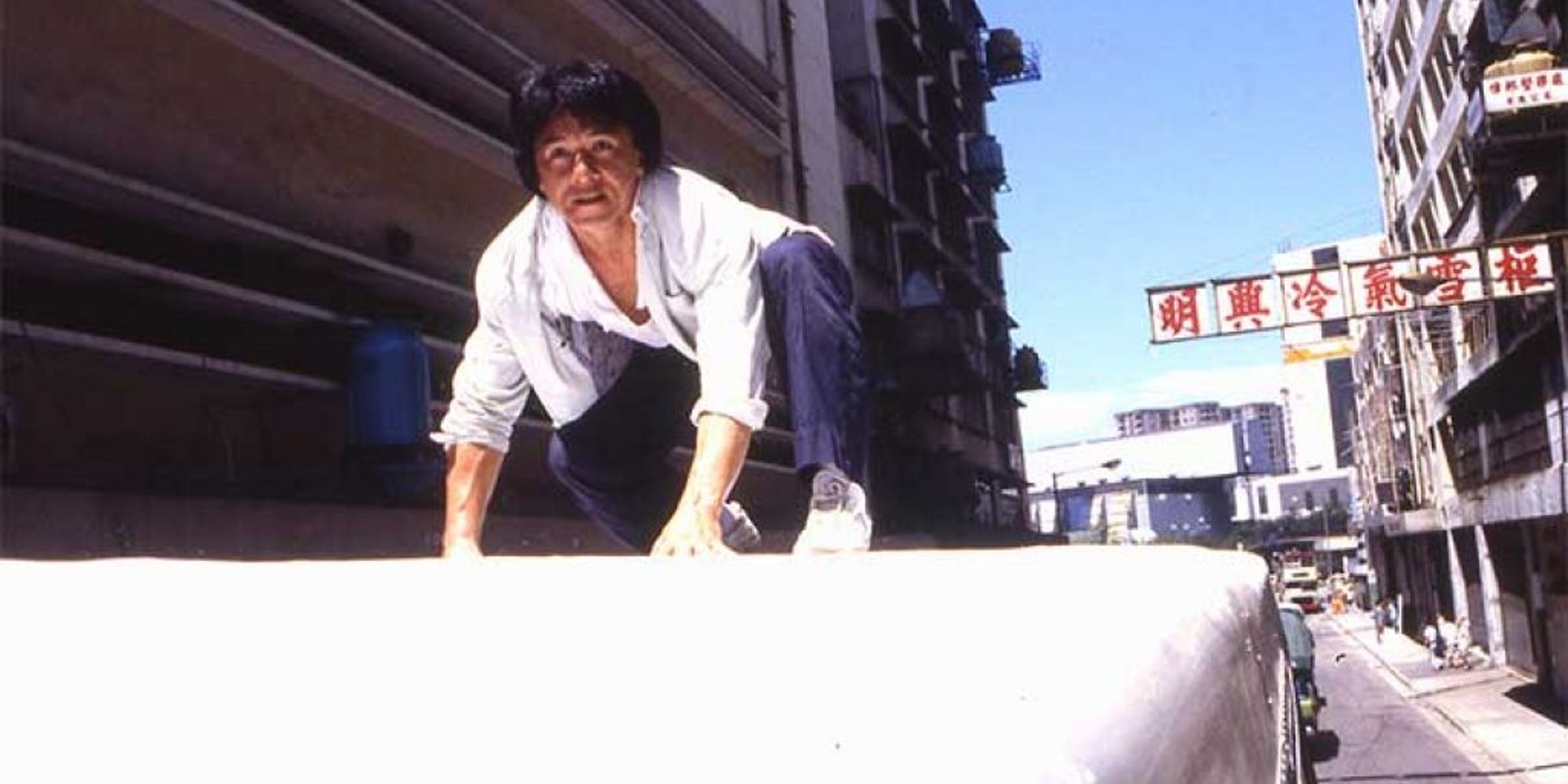
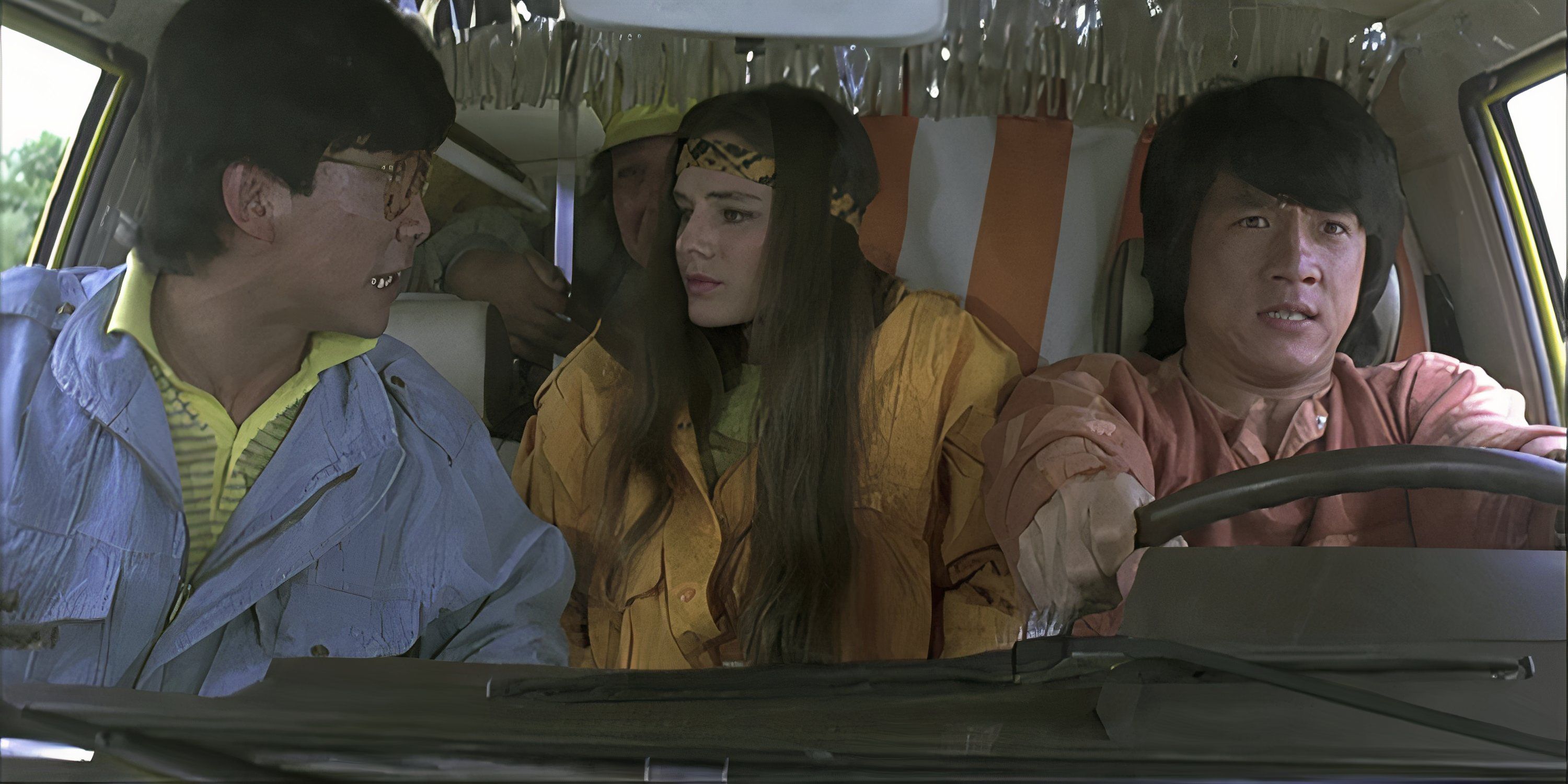
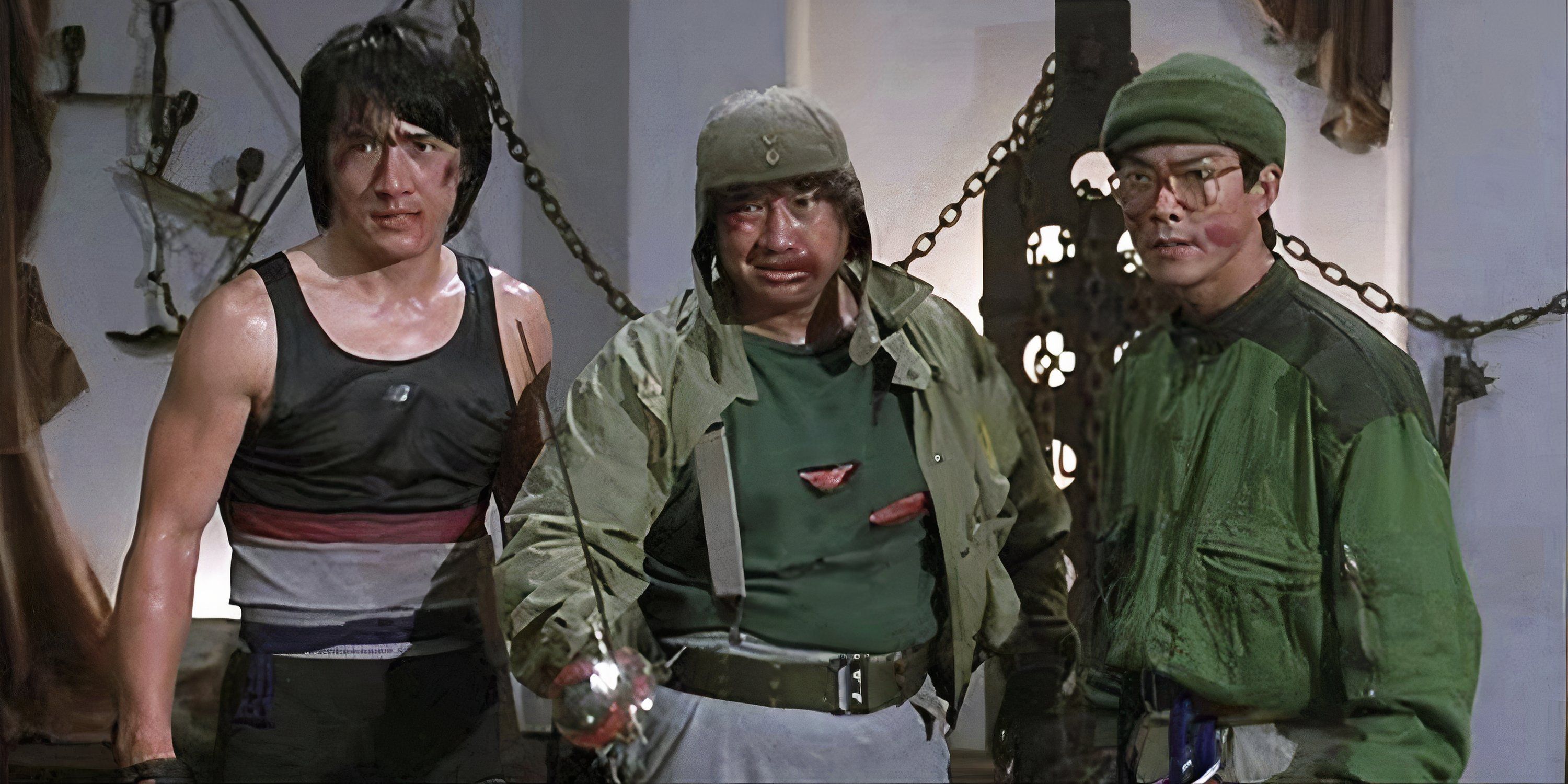
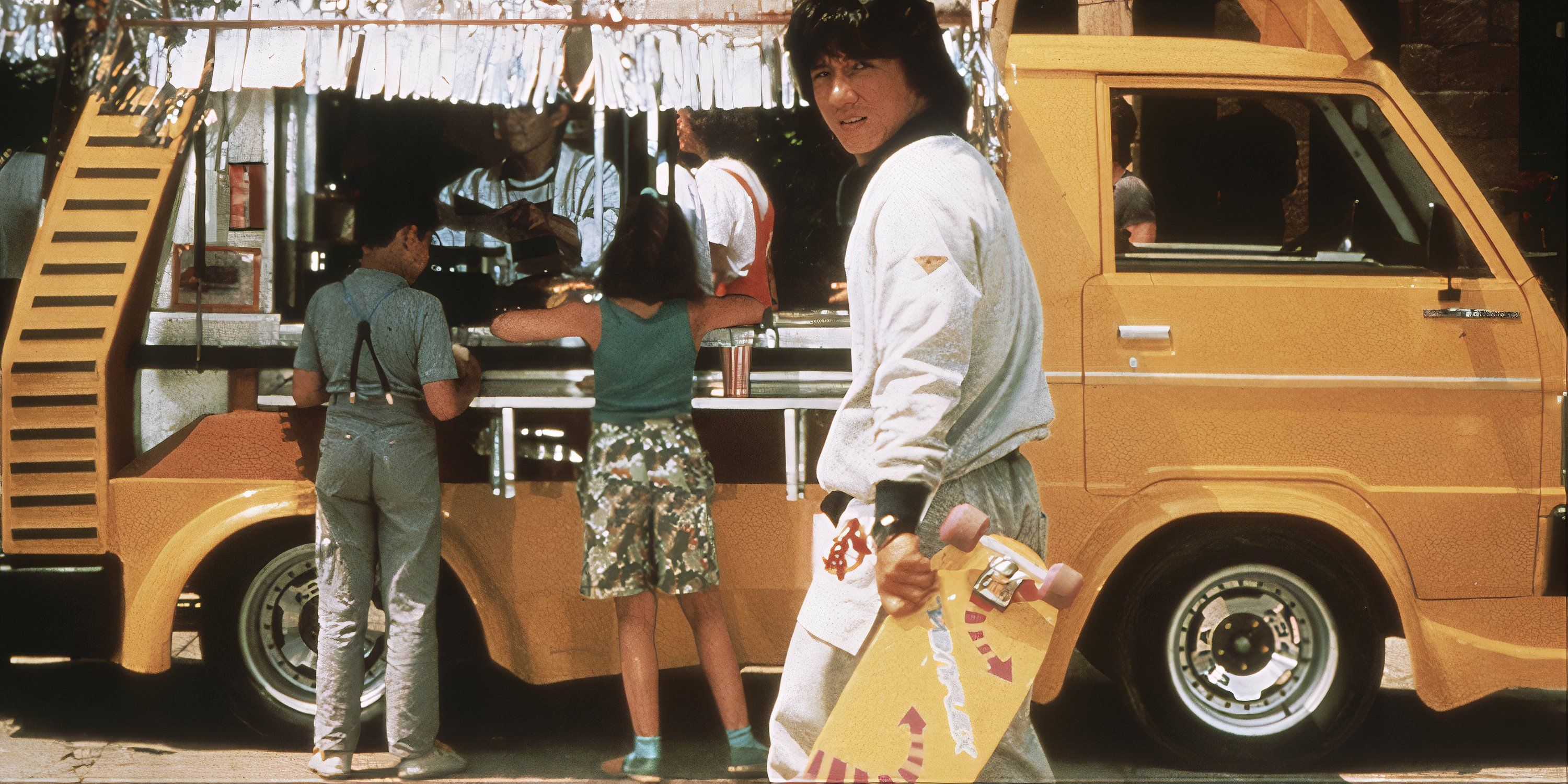
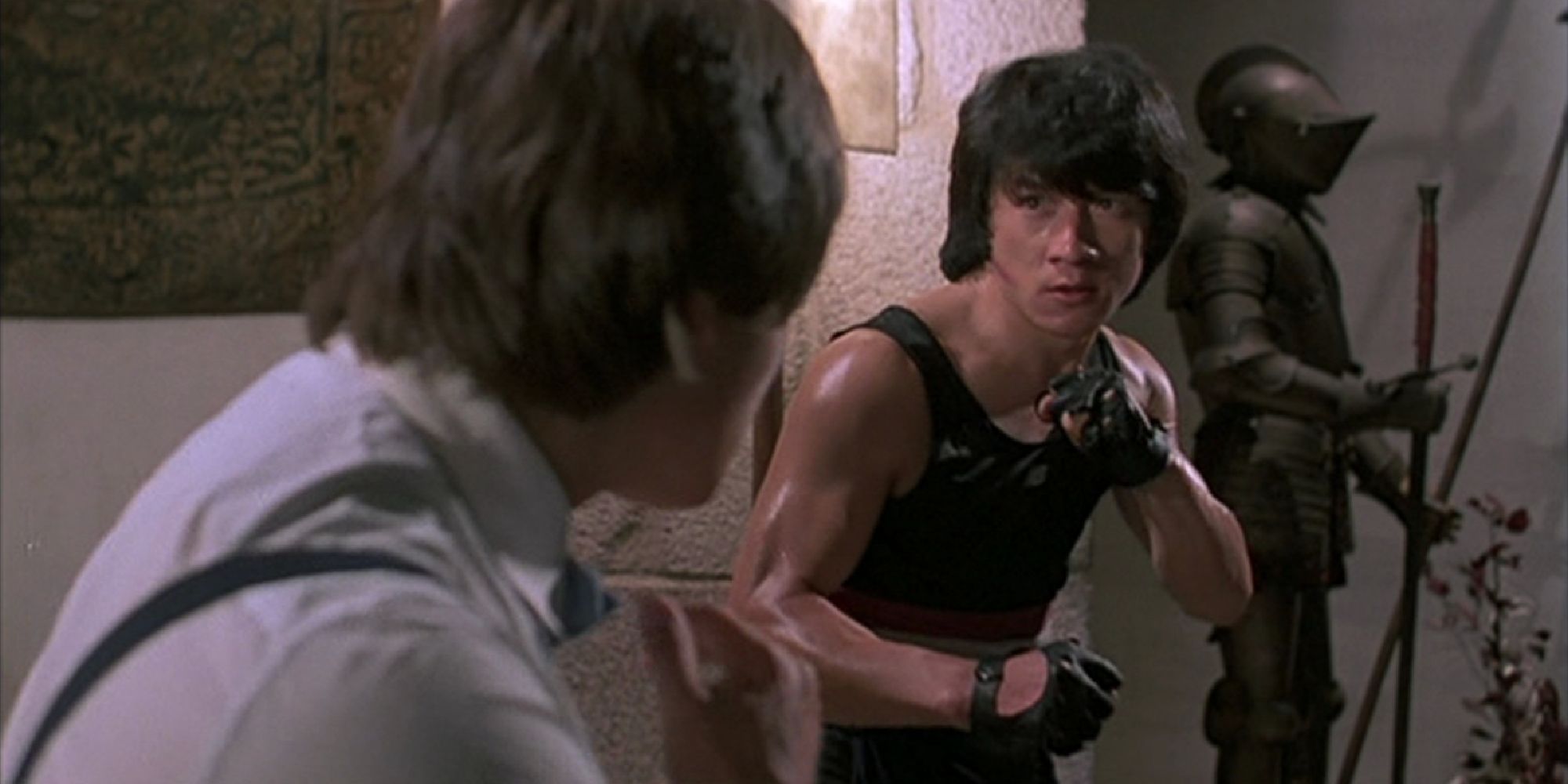
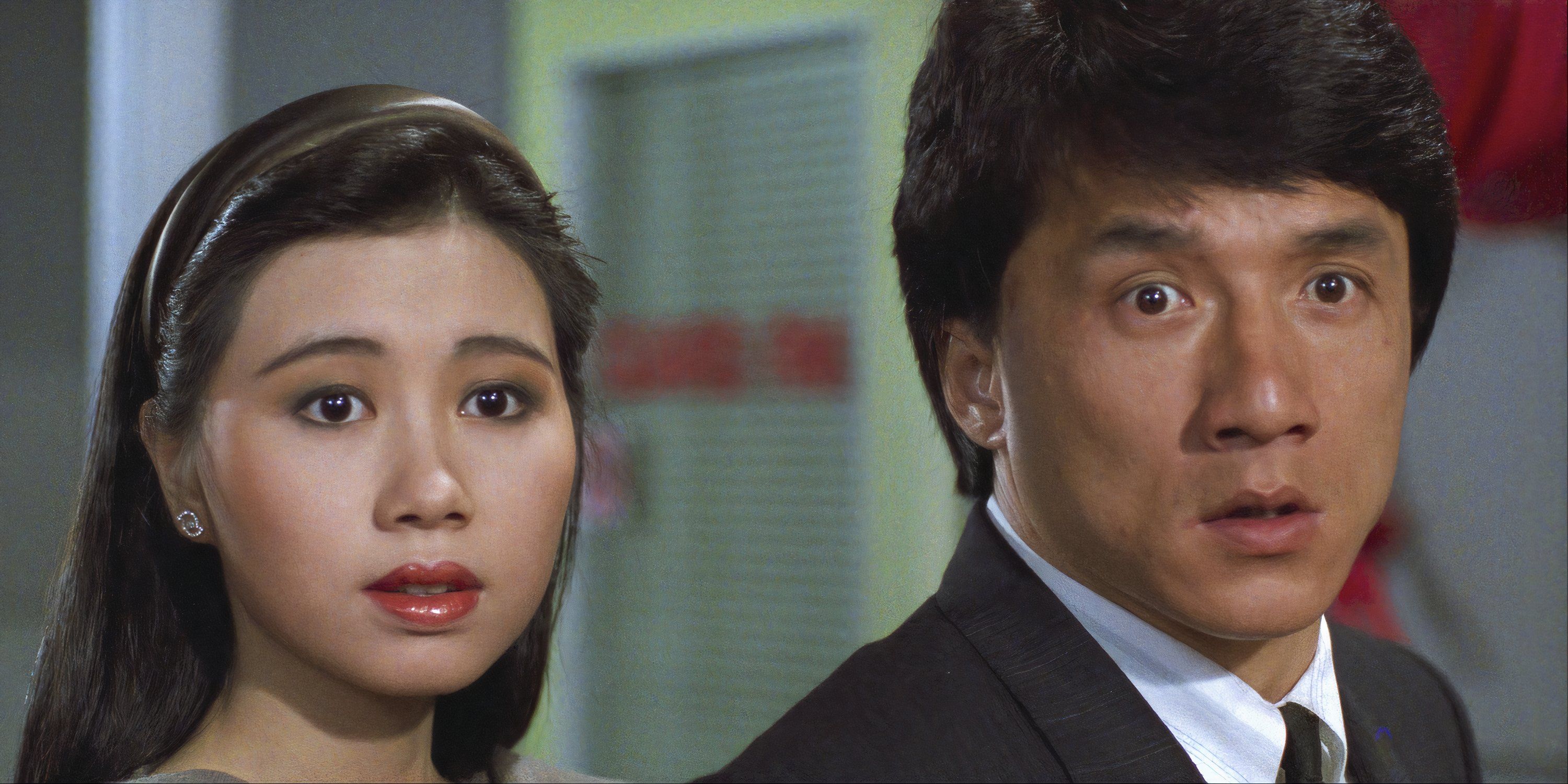
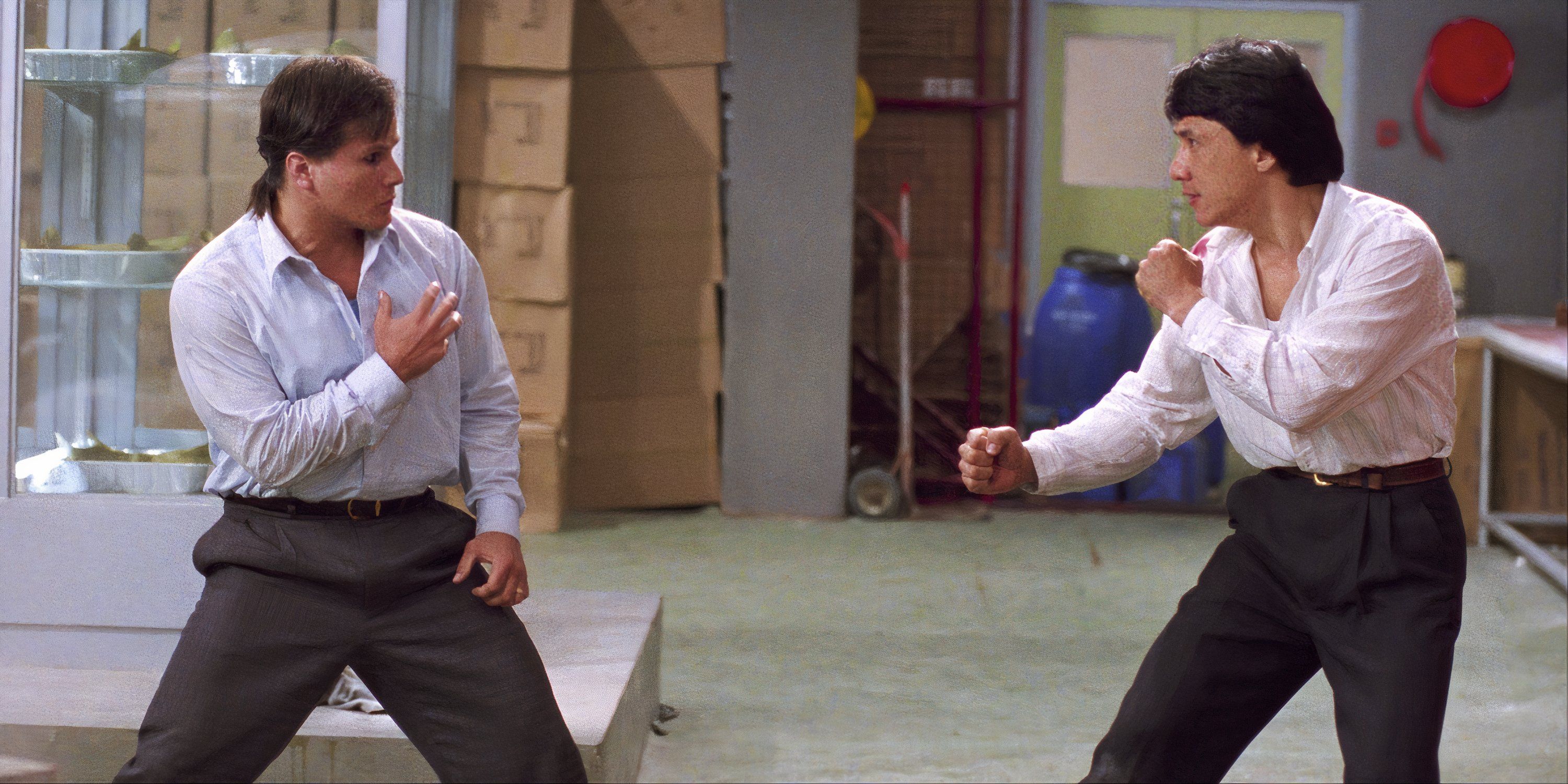
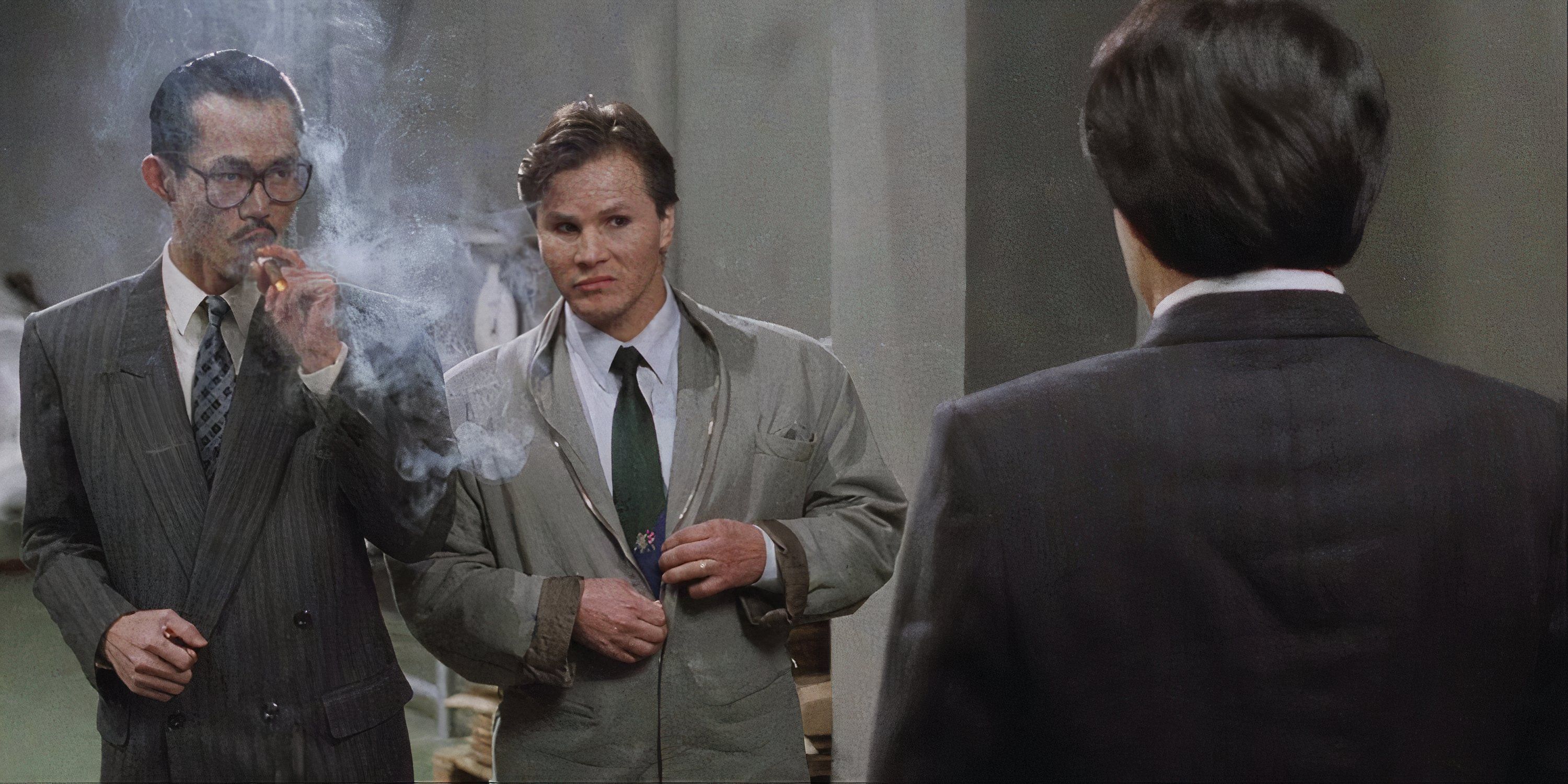
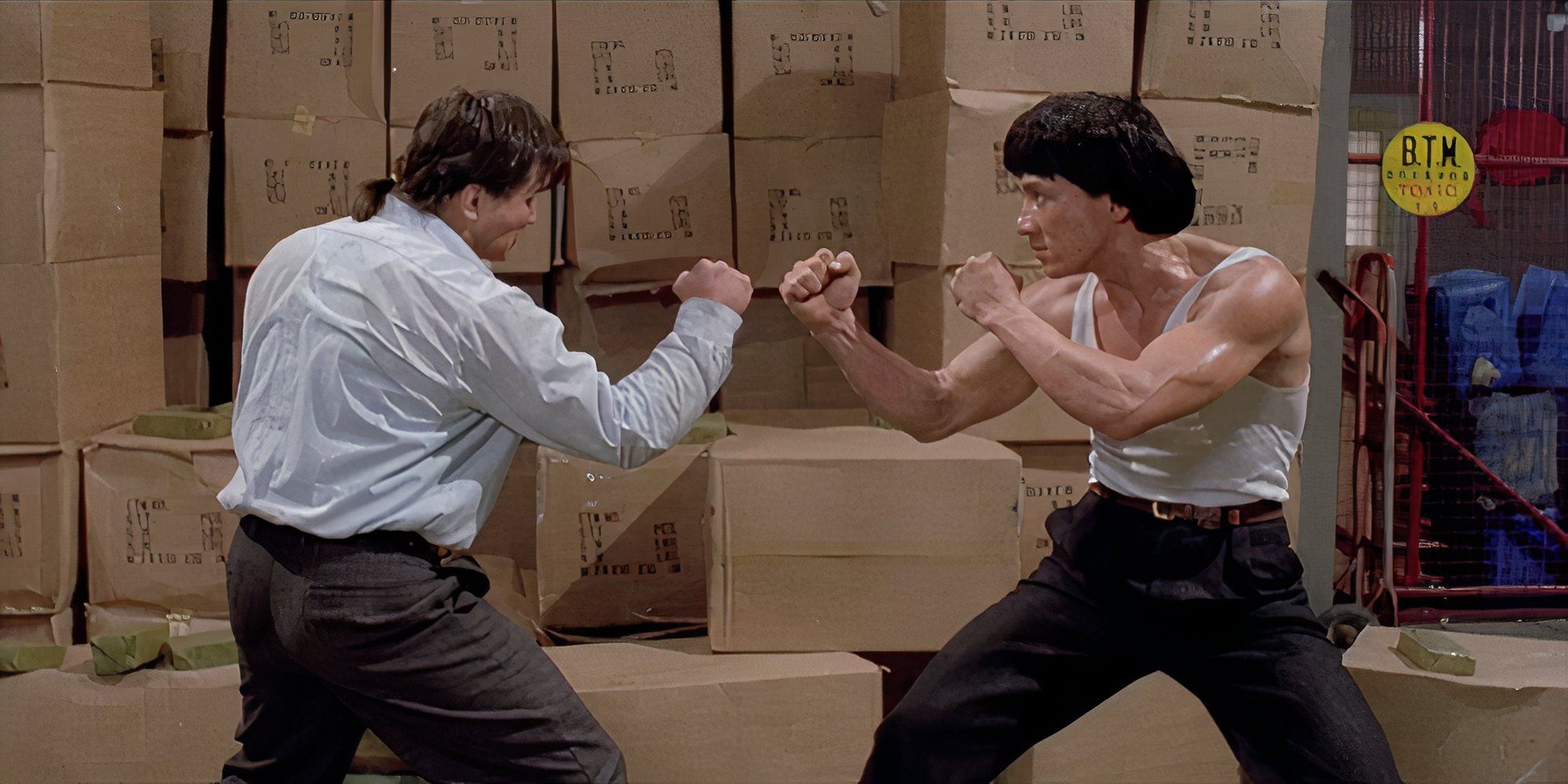
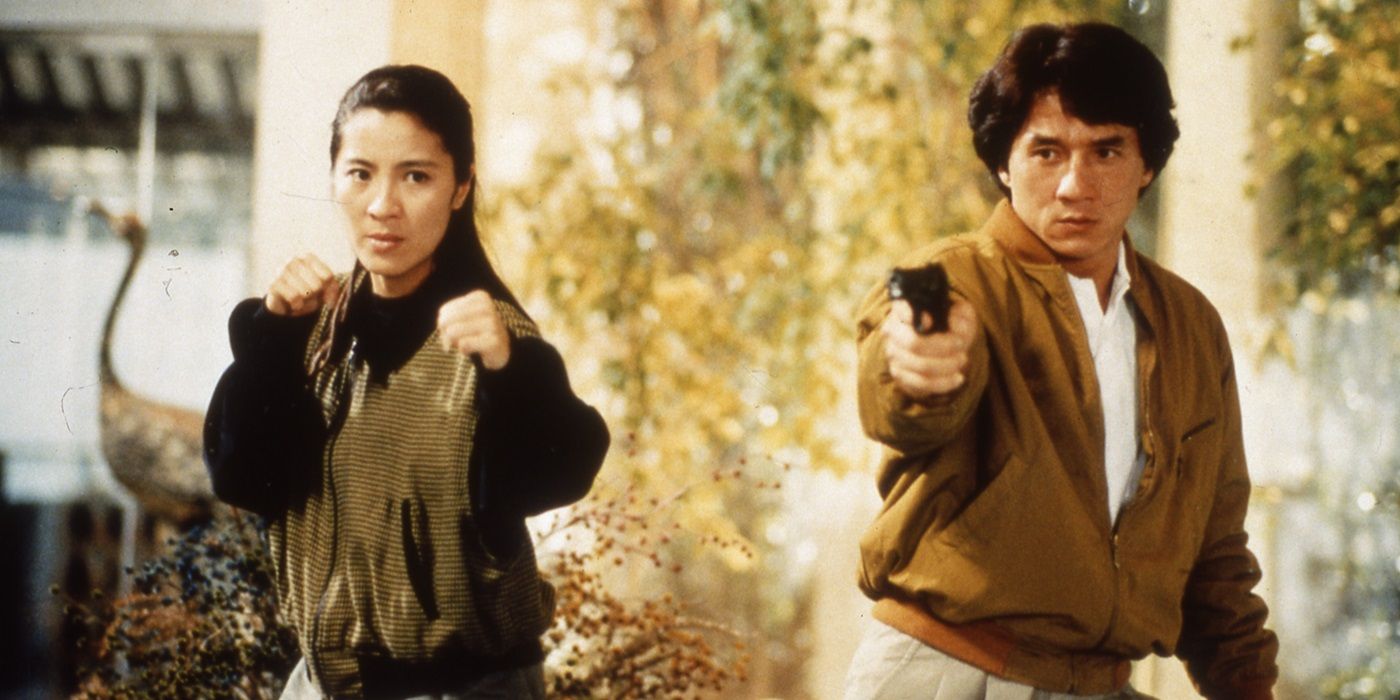
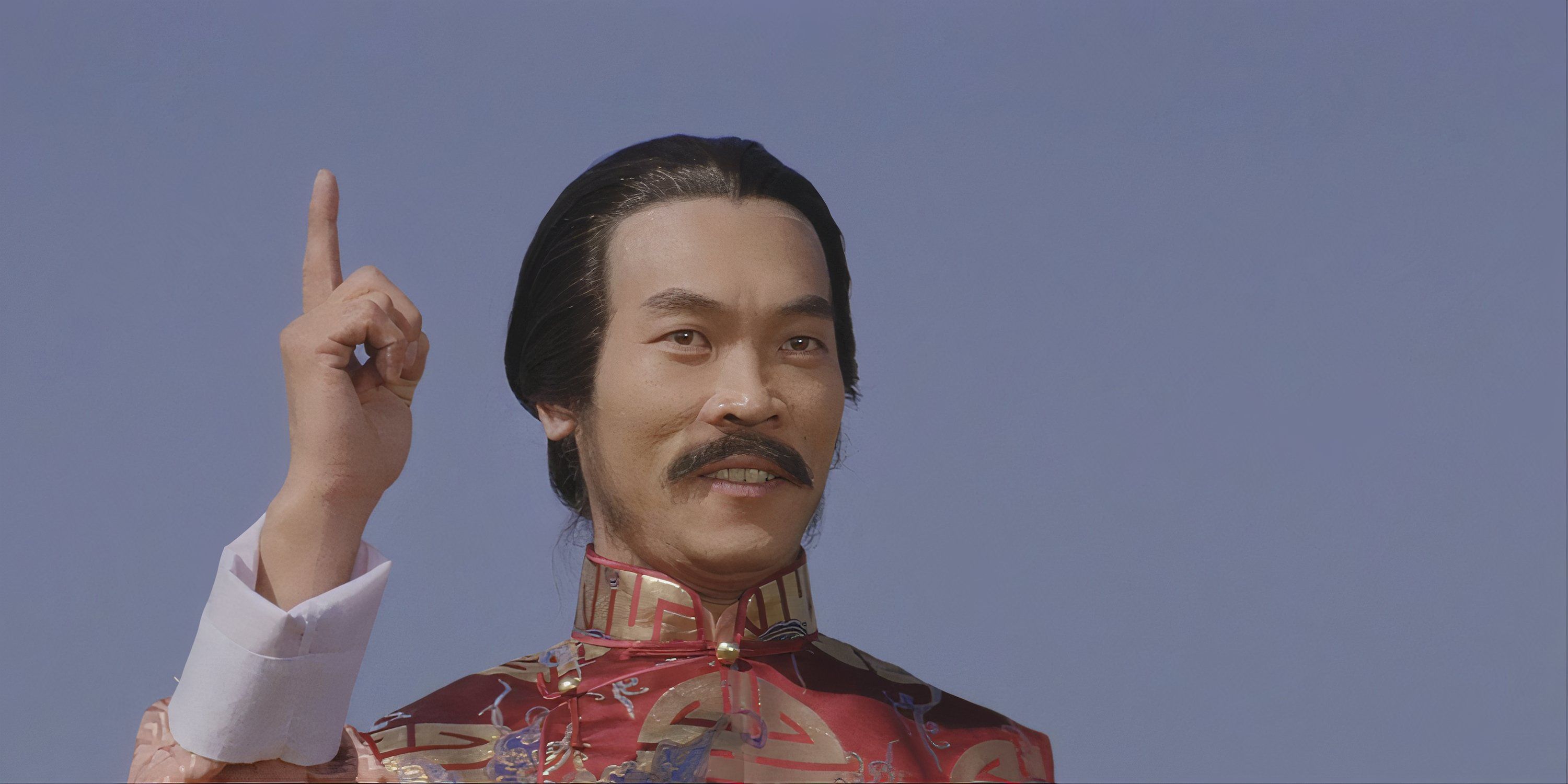
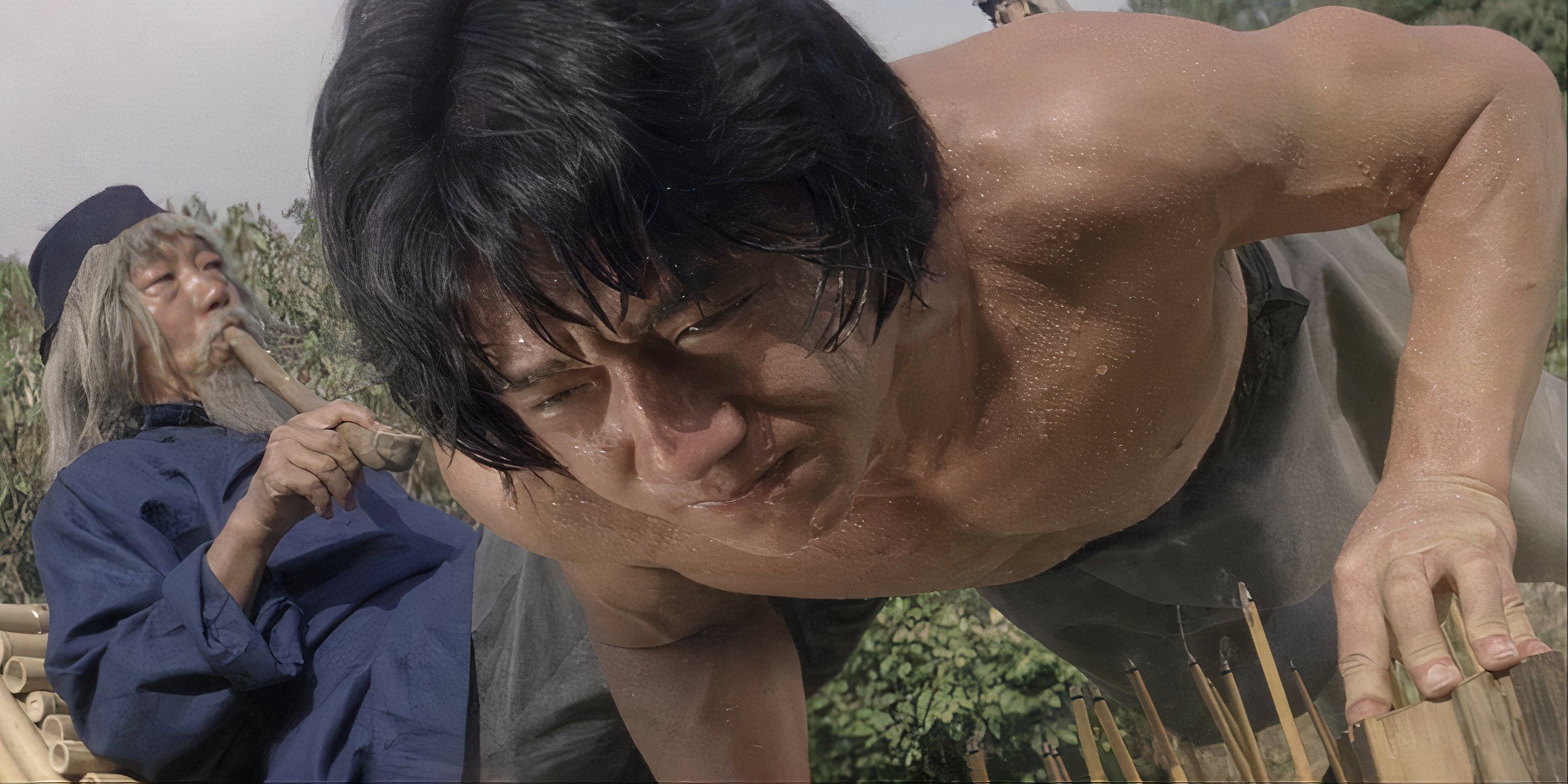
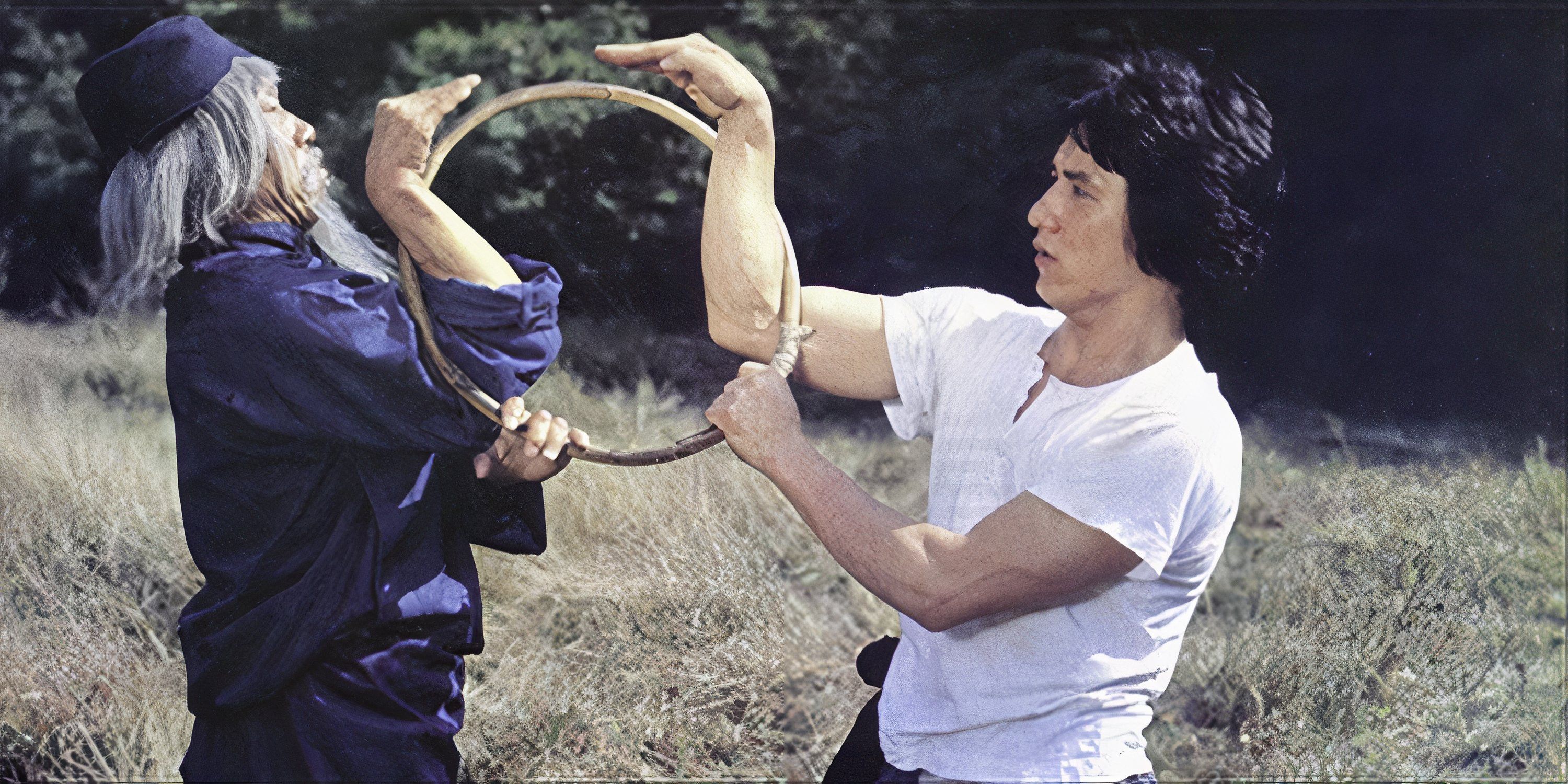
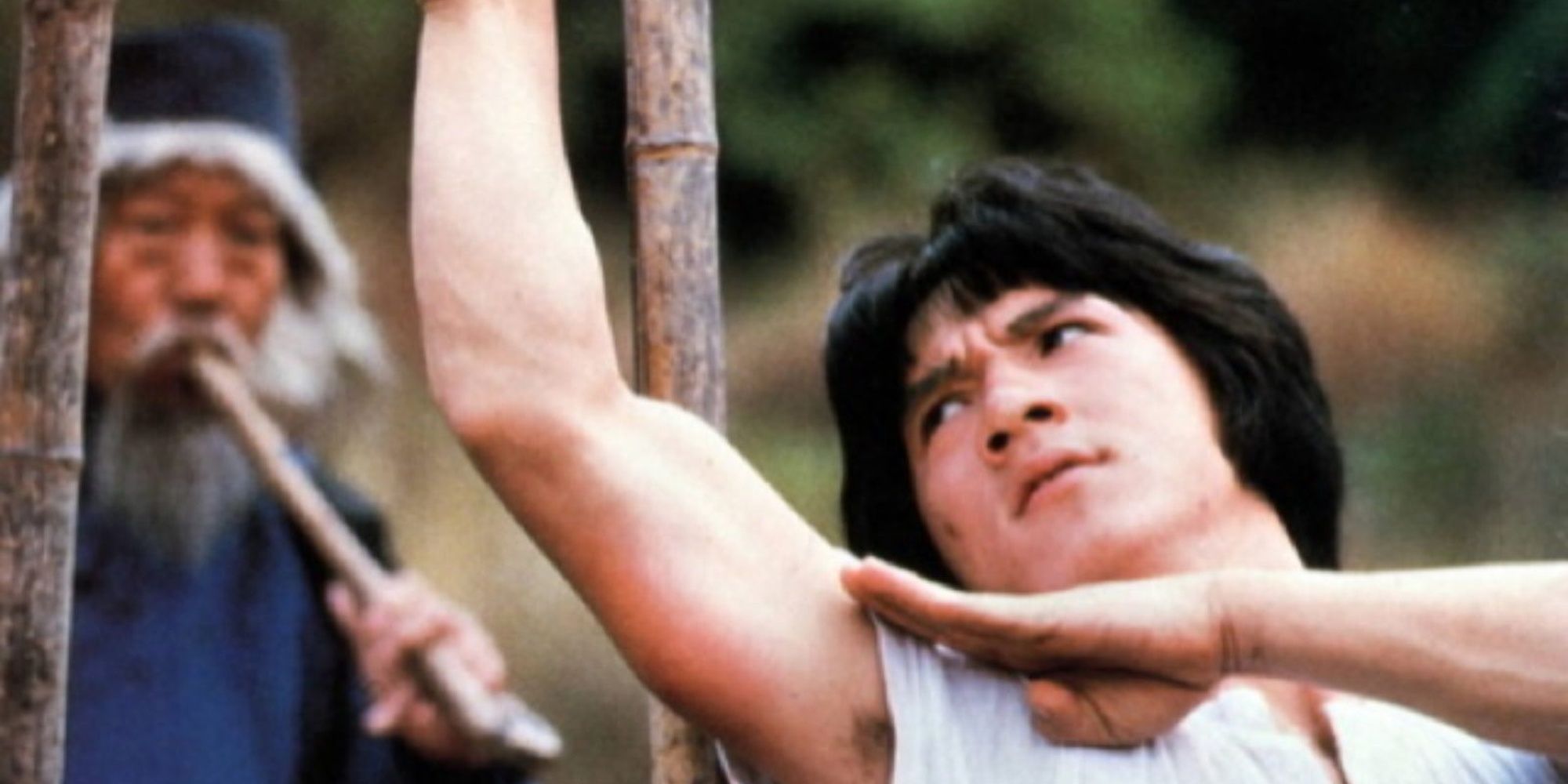
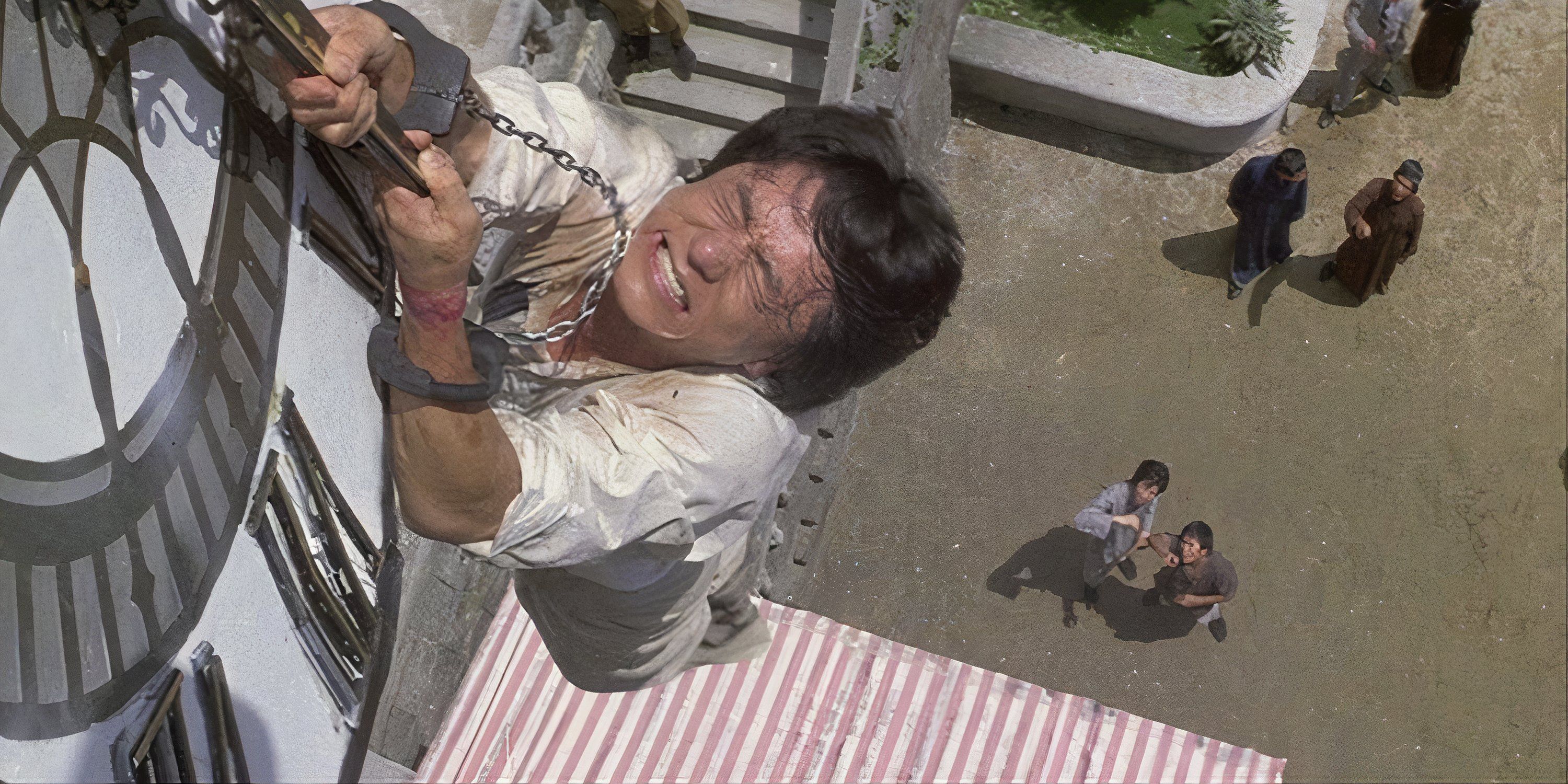
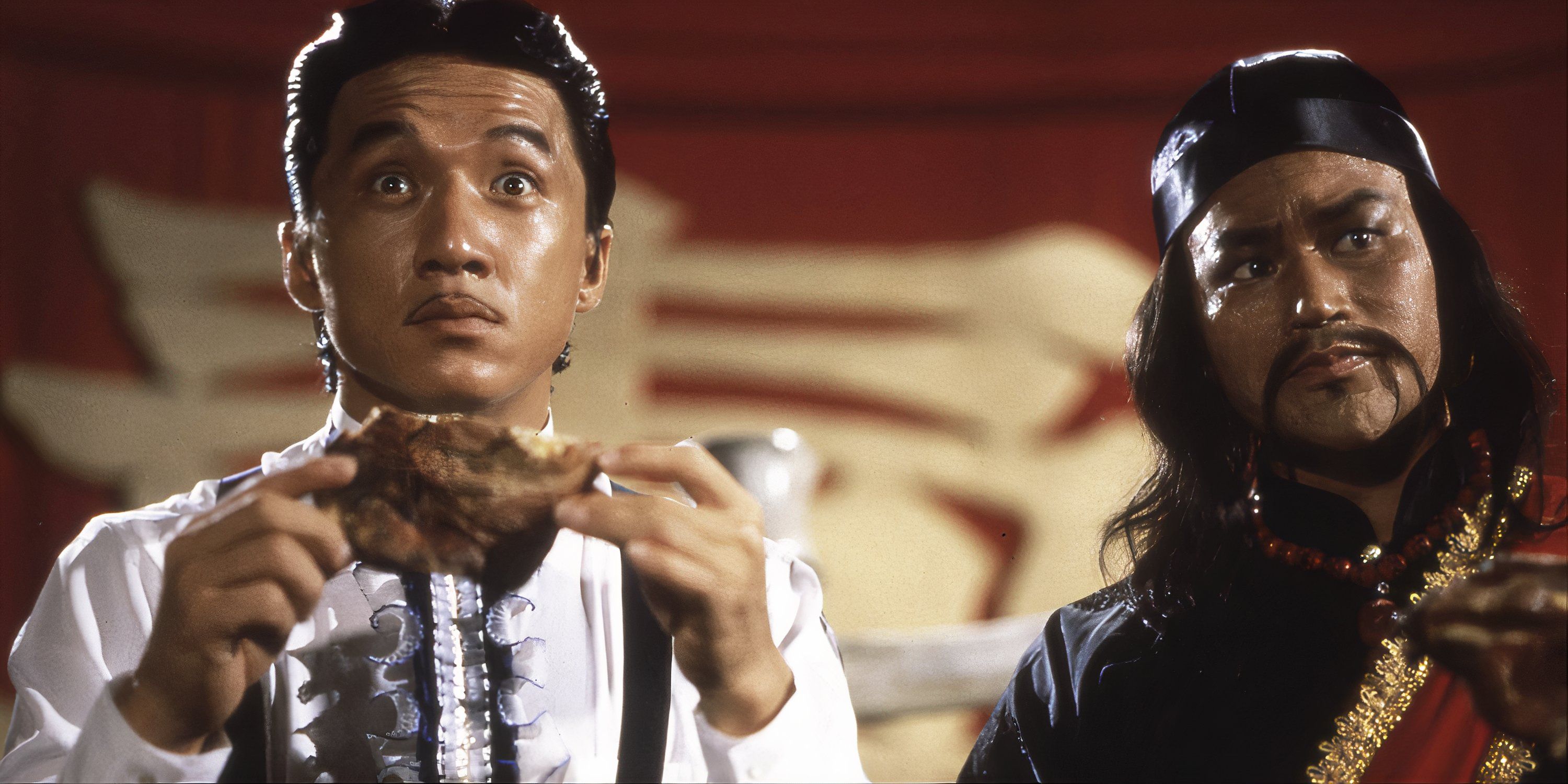
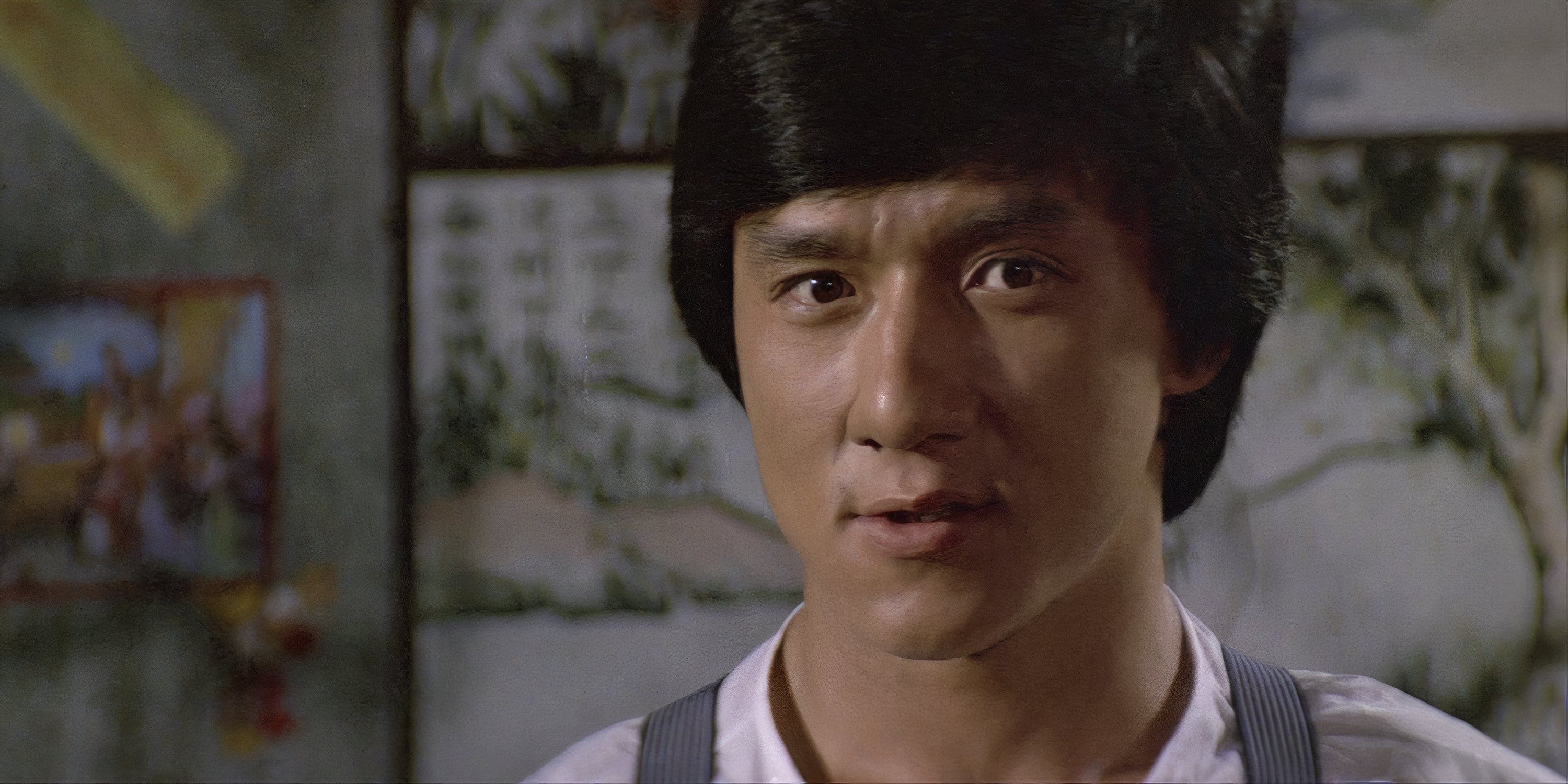
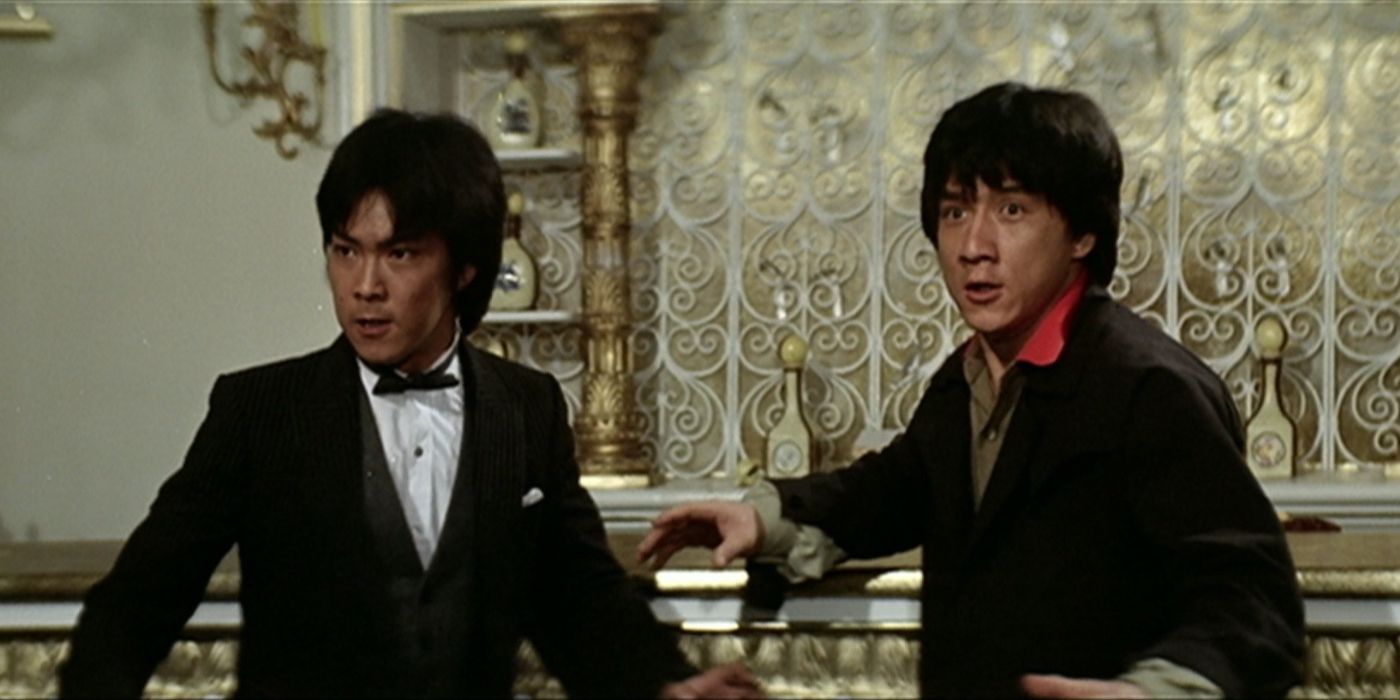
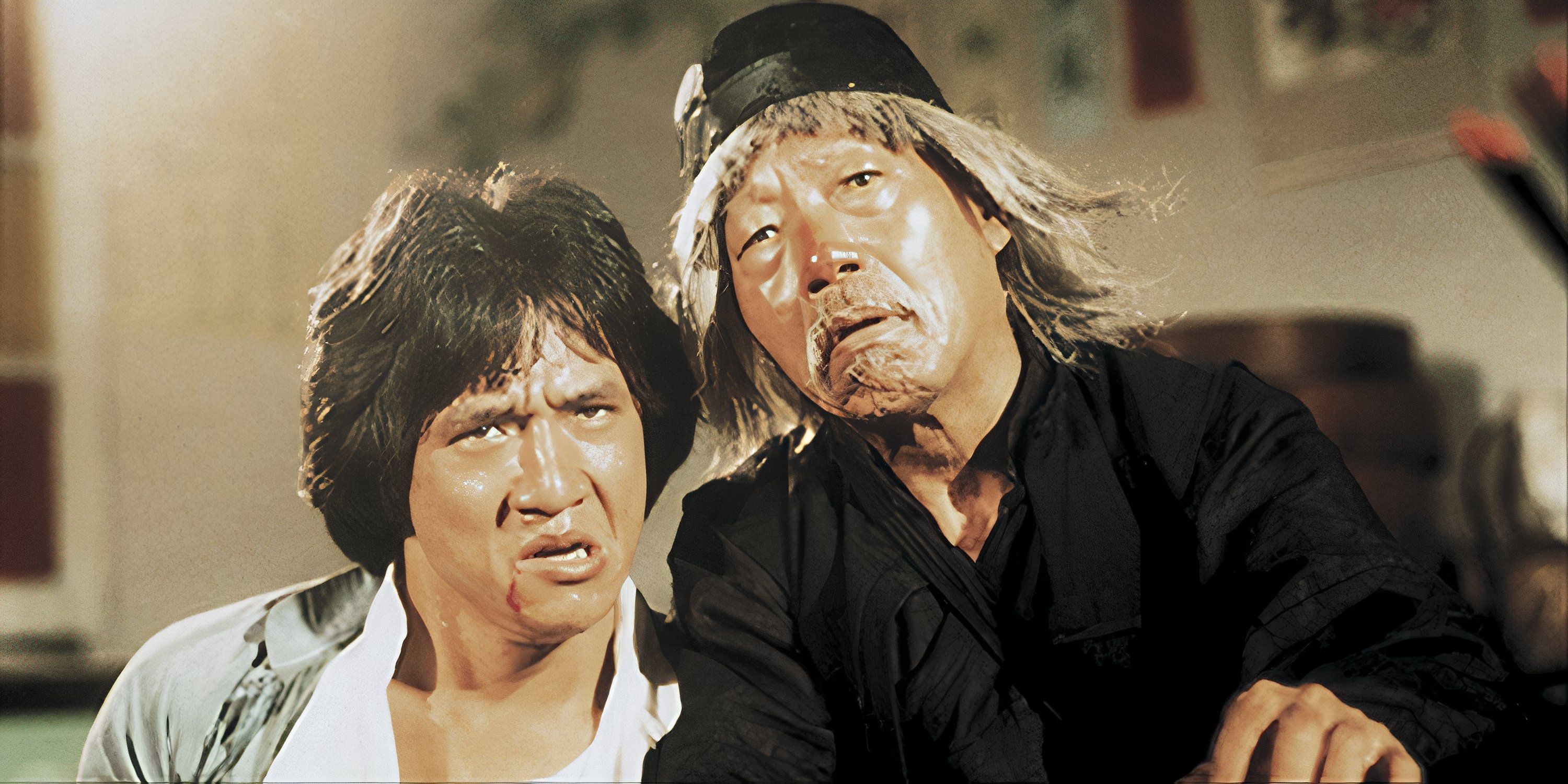
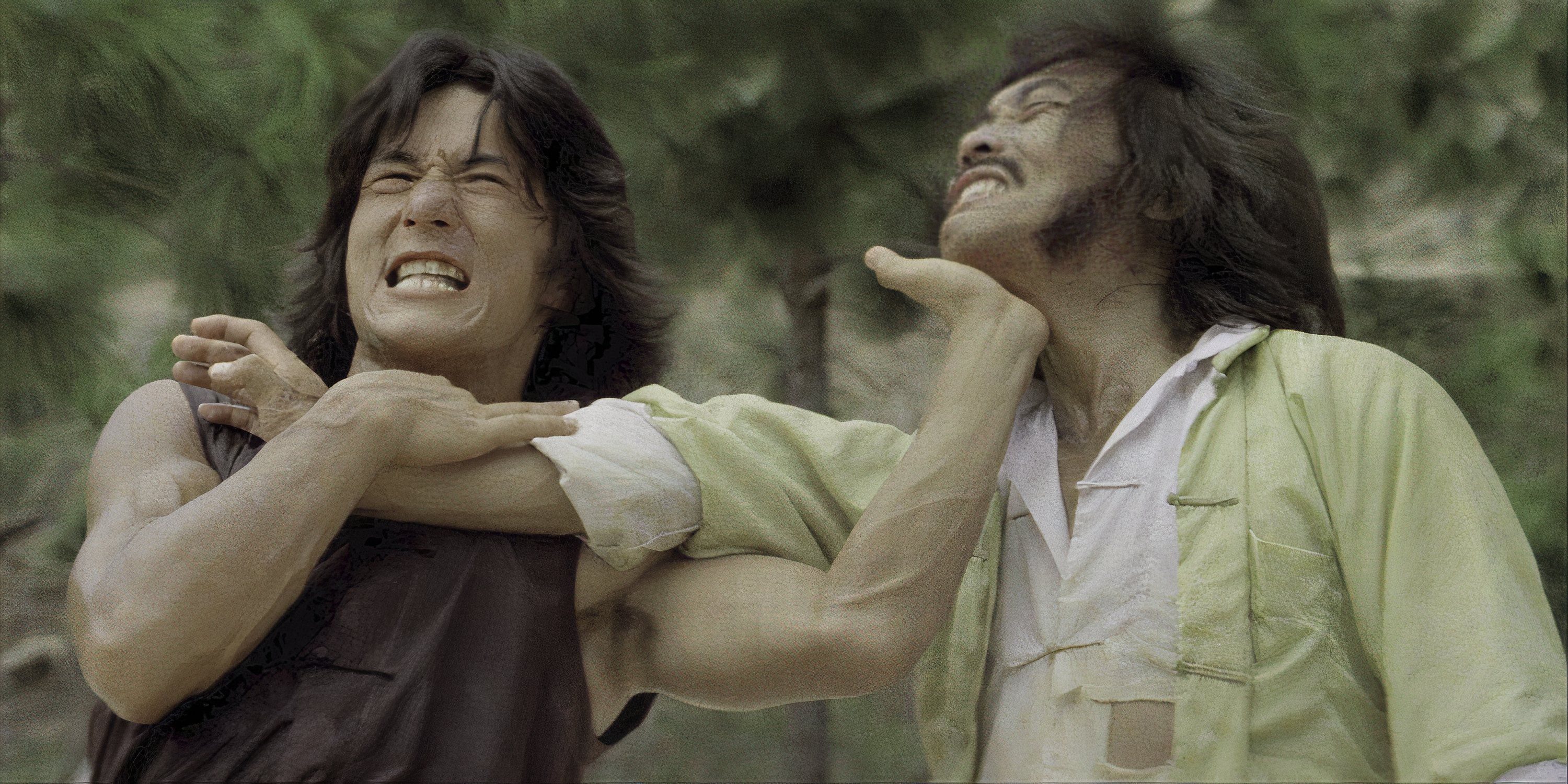
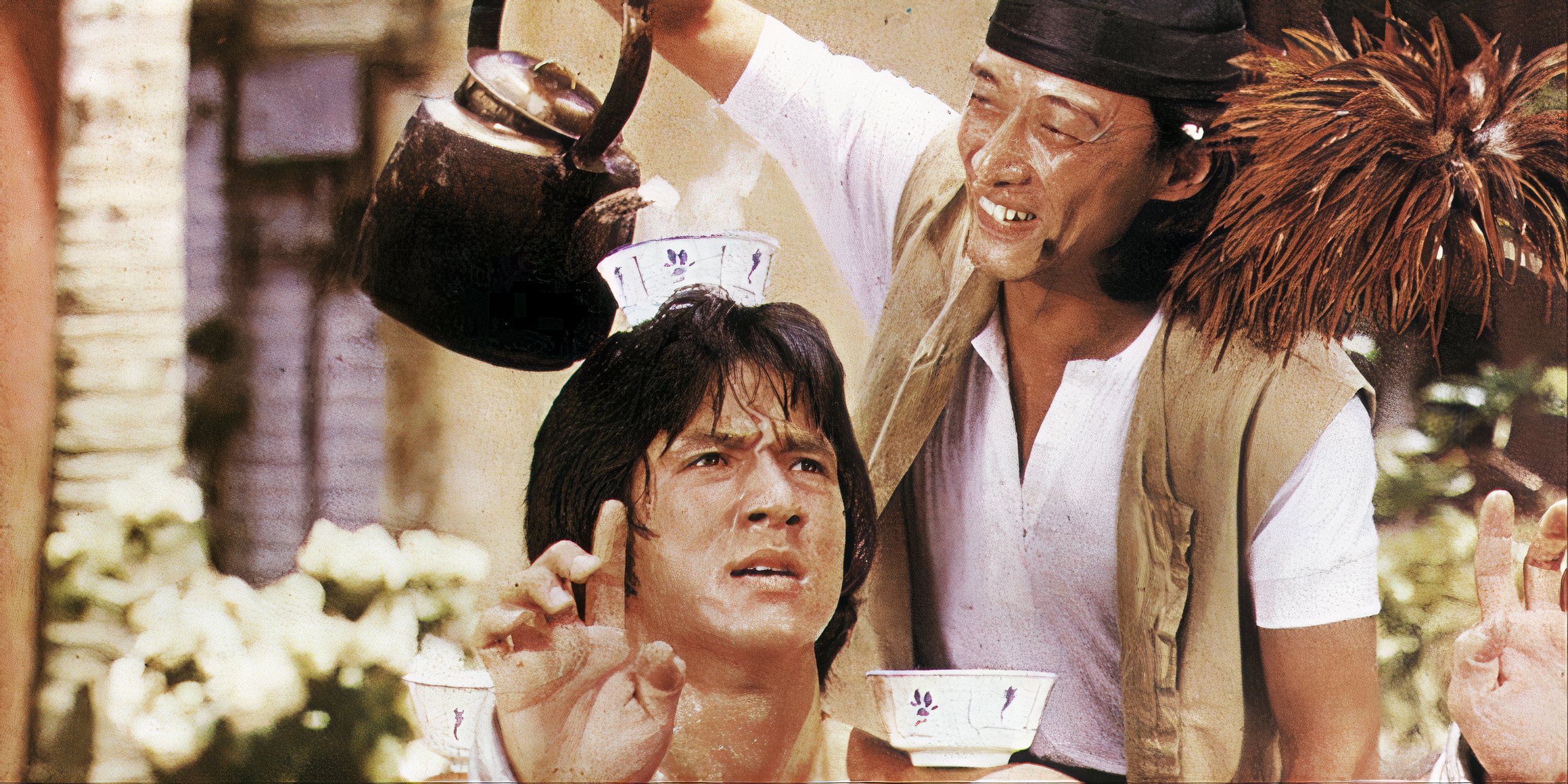
.jpg)
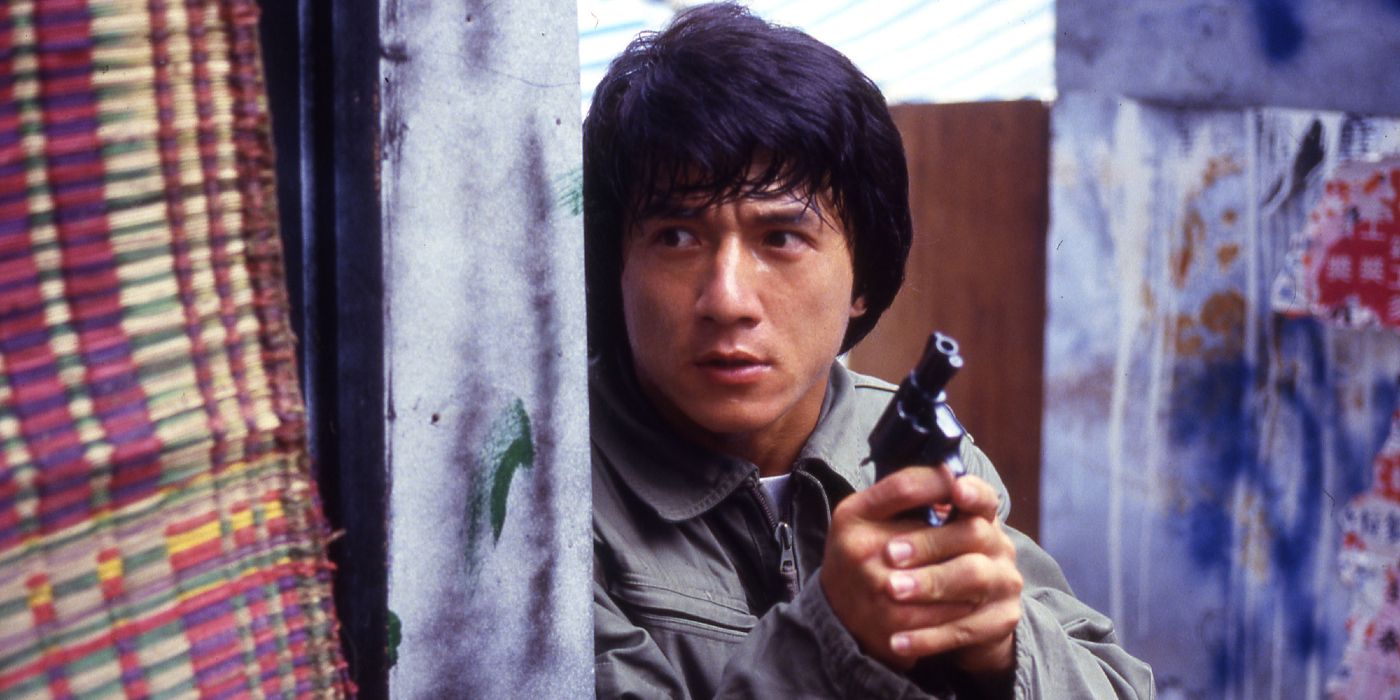
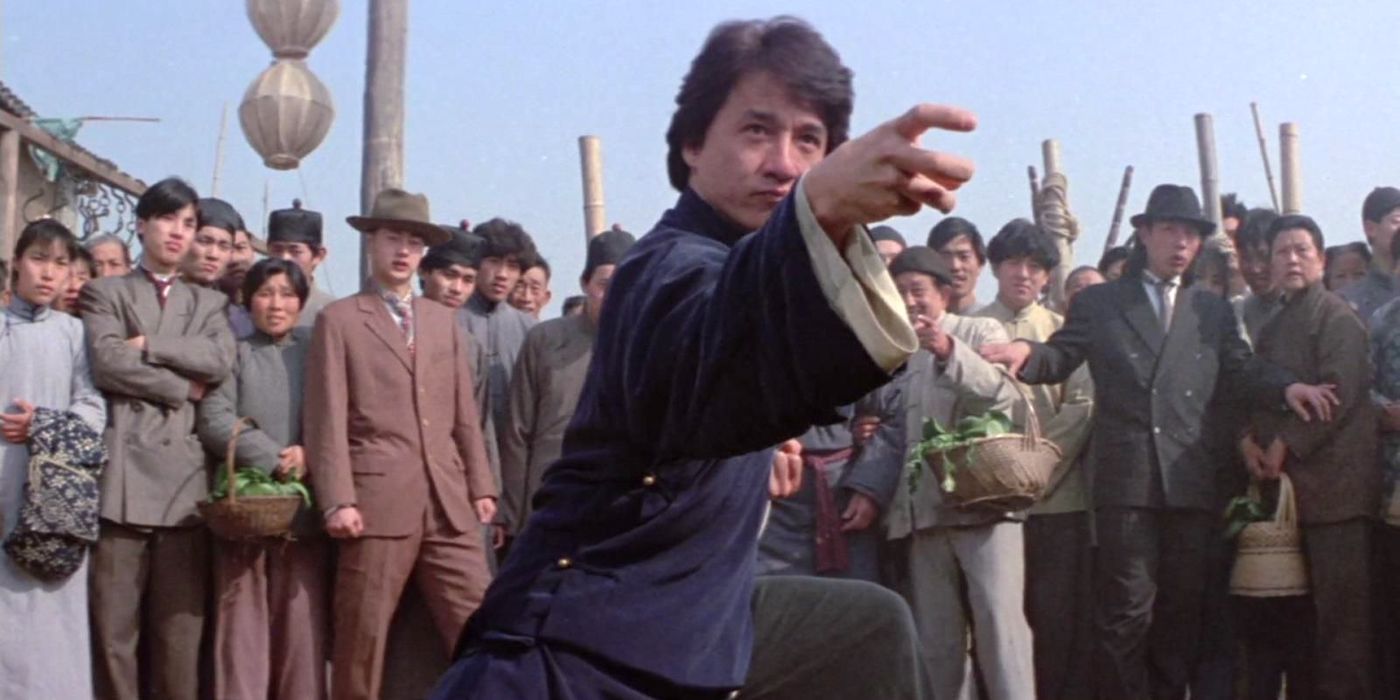
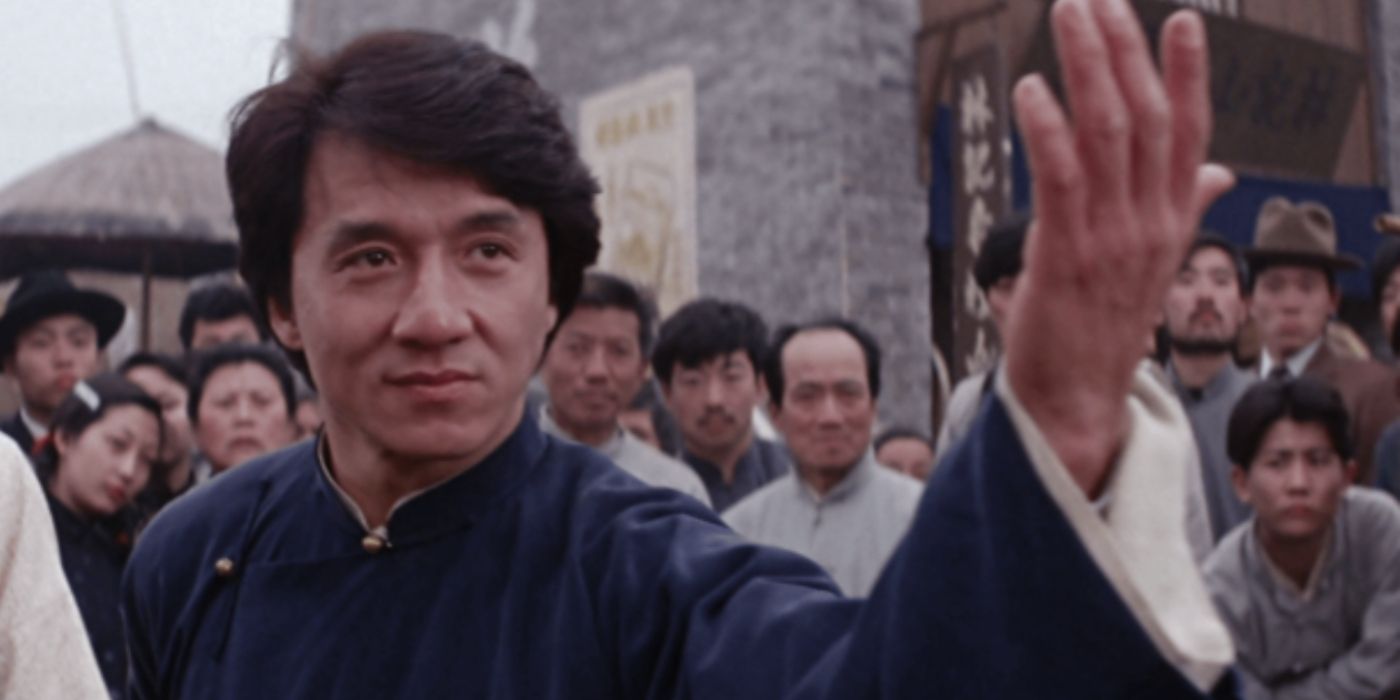
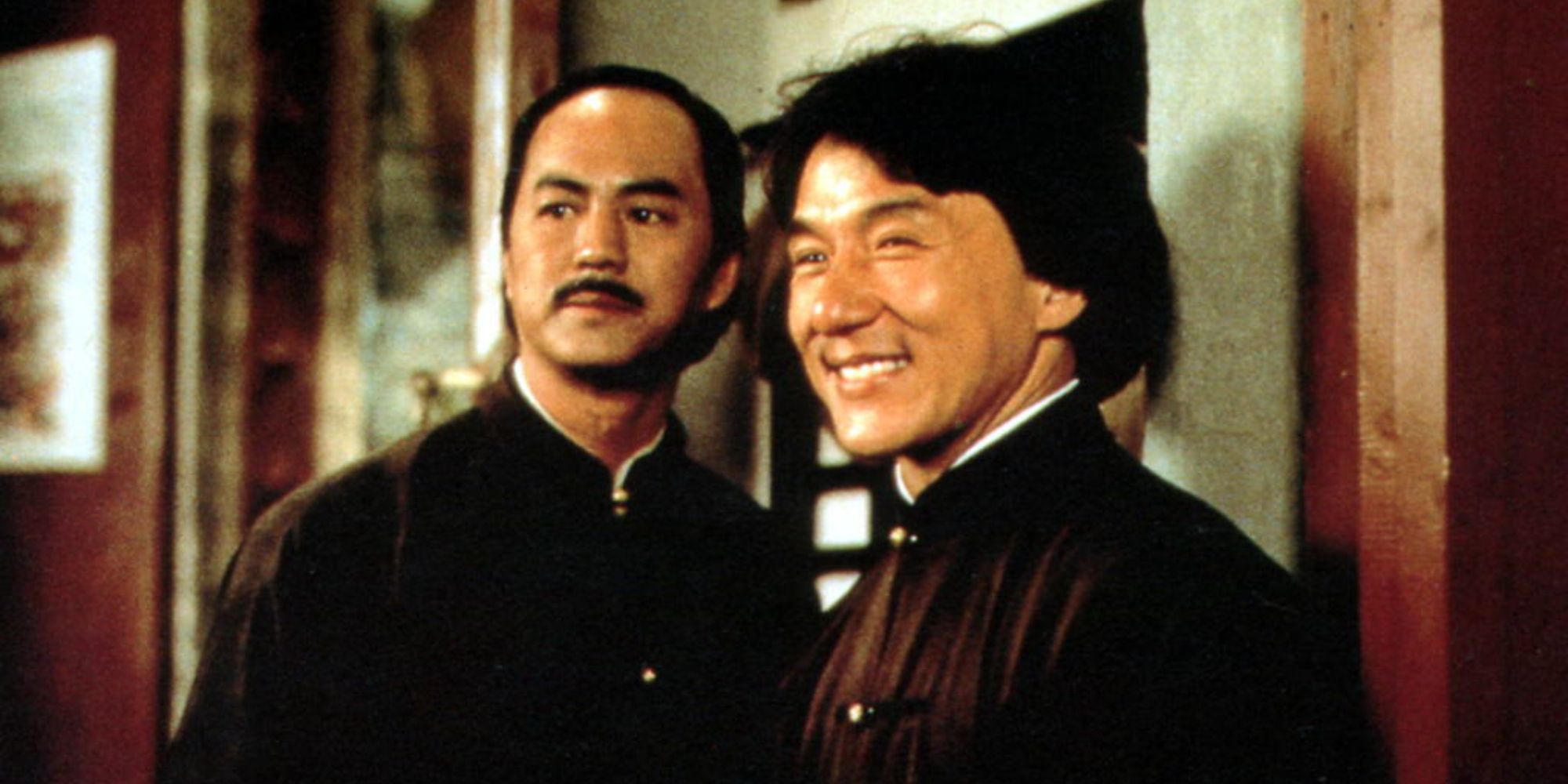
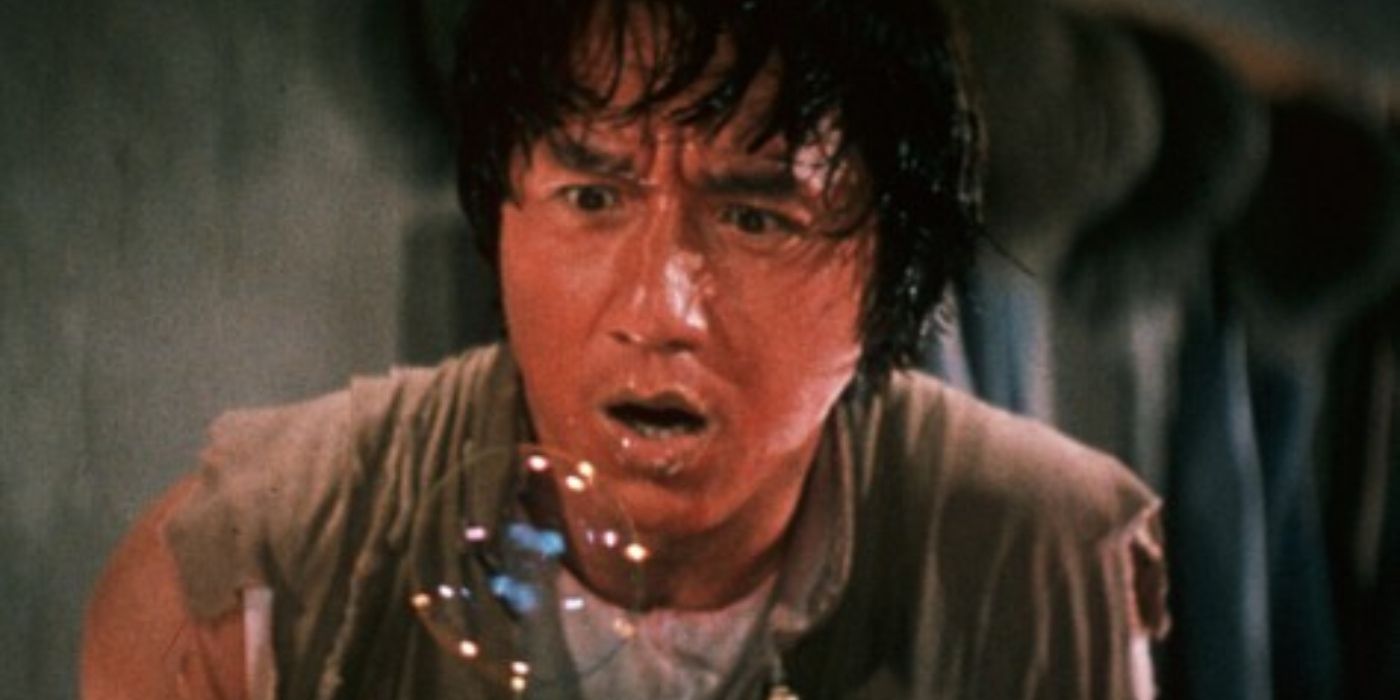
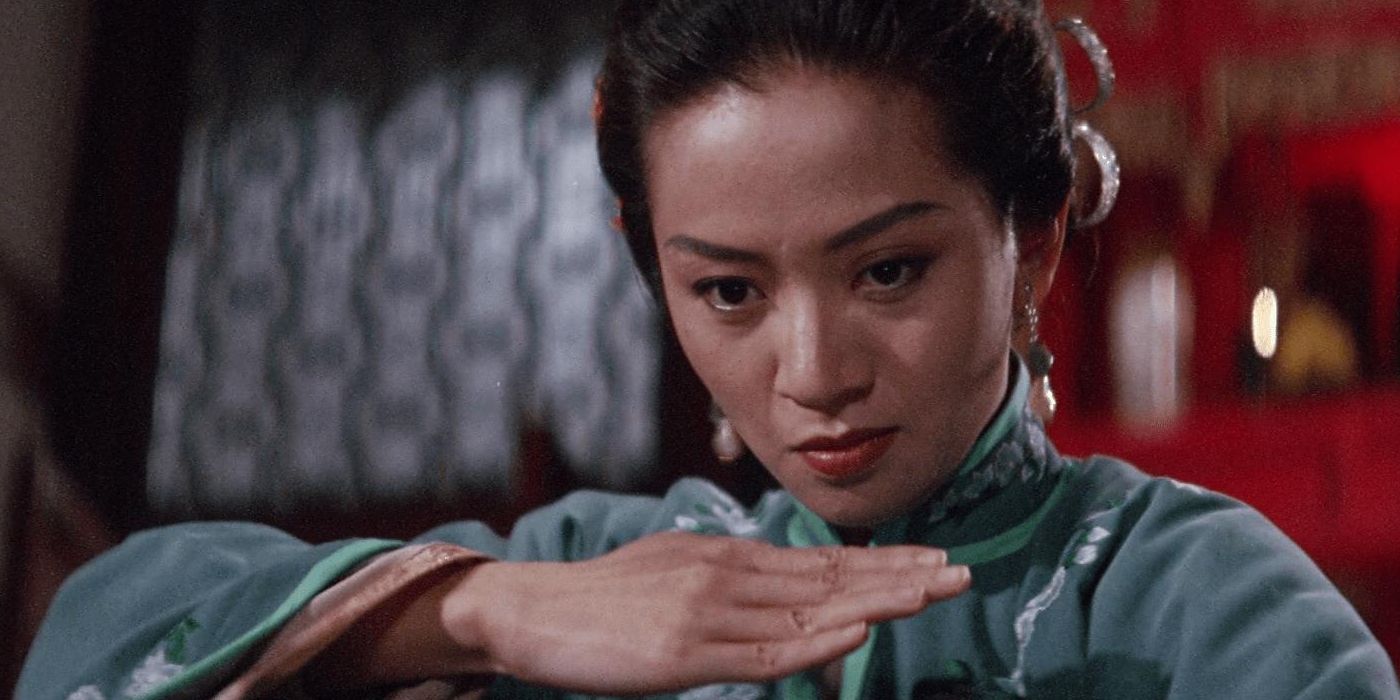
Không có nhận xét nào:
Đăng nhận xét